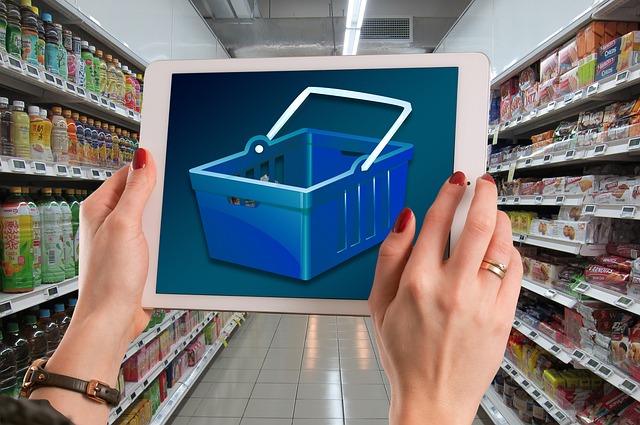Unlocking the E-Commerce Revolution: A Journey into the Digital Marketplace
In the tapestry of today’s digital realm, the vibrant threads of e-commerce weave together countless businesses and consumers, creating a transformative force that continues to shape our world. From humble beginnings to the boundless frontier of the digital marketplace, e-commerce has revolutionized the way we shop, sell, and interact with businesses.
Dawn of the Digital Era: Tracing the Threads of E-Commerce
The roots of e-commerce can be traced back to the early days of the internet, where visionary pioneers laid the groundwork for a new era of commerce. In 1994, the launch of Amazon.com marked a pivotal moment, transforming the concept of online shopping from a mere novelty to a mainstream phenomenon.
As technology advanced, so too did the capabilities of e-commerce platforms. Online marketplaces like eBay and Alibaba emerged, connecting buyers and sellers across vast geographical distances. Digital payment gateways such as PayPal simplified the secure transfer of funds, fostering trust and convenience.
E-Commerce Tapestry: Contemporary Trends and Innovations
Today, e-commerce has evolved into a sophisticated and multifaceted ecosystem. The rise of mobile commerce, powered by smartphones and tablets, has made shopping accessible anytime, anywhere. Social media platforms like Instagram and Pinterest have become influential channels for product discovery and brand engagement.
Artificial intelligence (AI) and machine learning are playing an increasingly prominent role in e-commerce, enhancing customer experiences through personalized recommendations, predictive analytics, and automated customer support. Virtual and augmented reality technologies are transforming the way we interact with products online, offering immersive experiences that bridge the gap between the digital and physical realms.
The E-Commerce Challenge: Navigating Roadblocks and Solutions
Despite its transformative potential, e-commerce faces its own set of challenges. Security concerns related to data privacy and payment fraud require constant vigilance. The logistics of order fulfillment and delivery can be complex and costly, particularly for businesses operating globally.
Overcoming these challenges demands innovative solutions. Robust security measures, transparent data management practices, and sophisticated fraud detection systems are essential to protect consumers and businesses. Streamlined supply chain management, optimized shipping and delivery processes, and strategic partnerships with logistics providers can enhance efficiency and reduce costs.
Case Studies: E-Commerce Trailblazers
Amazon’s Unwavering Dominance: Amazon has remained an e-commerce colossus, leveraging its vast product selection, lightning-fast delivery, and customer-centric approach to capture a significant market share.
Alibaba’s Global Marketplace: The Chinese e-commerce giant Alibaba has built a global ecosystem connecting millions of businesses with consumers worldwide through its Taobao and Tmall platforms.
Shopify’s Empowering Entrepreneurs: Shopify provides an accessible and user-friendly platform for small businesses to establish their online presence and manage their e-commerce operations.
Best Practices: Harnessing the Power of E-Commerce
For businesses seeking to thrive in the e-commerce landscape, a focus on customer experience is paramount. A seamless website design, intuitive navigation, and a secure checkout process are essential. Personalized marketing campaigns, tailored product recommendations, and responsive customer support enhance customer satisfaction and loyalty.
Leveraging data analytics is invaluable for understanding customer behavior, optimizing marketing efforts, and improving overall business performance. Real-time inventory management and efficient order processing ensure timely delivery and minimize customer frustration.
The E-Commerce Horizon: Envisioning the Future
The future of e-commerce holds infinite possibilities. Cloud computing and blockchain technology will revolutionize scalability, security, and data sharing. Immersive technologies like virtual reality and augmented reality will further enhance customer experiences.
Sustainability will become an increasingly important aspect of e-commerce, as businesses adopt eco-friendly packaging, reduce their carbon footprint, and promote ethical sourcing.
Indianapolis: A Hub of E-Commerce Innovation
Indianapolis has emerged as a hub of e-commerce activity, contributing to the city’s thriving tech ecosystem. Key advancements and contributions from the region include:
-
FedEx’s Global Logistics Network: FedEx, headquartered in Indianapolis, serves as a global logistics giant, facilitating the efficient delivery of e-commerce orders worldwide.
-
Simon Property Group’s E-Commerce Initiatives: Simon, a leader in the retail real estate industry, is actively developing e-commerce solutions to bridge the gap between physical and digital shopping experiences.
-
Local E-Commerce Startups: A vibrant community of e-commerce startups, such as Zylo and Square Roots, is driving innovation and job creation in Indianapolis.
Expansive Summary: Weaving Together the Threads of E-Commerce
E-commerce has transformed the way we conduct business, connect with consumers, and experience the world of retail. From its humble beginnings to its current status as a global economic powerhouse, e-commerce continues to evolve, driven by technological advancements and the ever-changing needs of consumers.
By addressing challenges through innovative solutions, embracing best practices, and anticipating future trends, businesses can harness the transformative power of e-commerce to achieve success and create unparalleled customer experiences. As we venture into the uncharted territories of the digital marketplace, the threads of e-commerce will continue to reshape our lives and businesses in ways we can only imagine.








